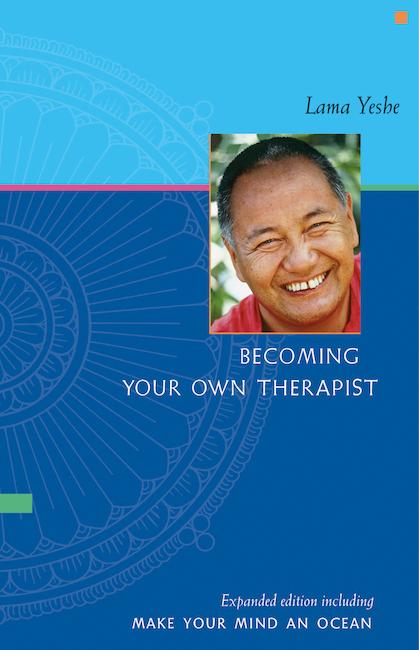Lama Yeshe’s teachings are unique. Nobody taught like Lama. Spontaneous, from the heart, in the moment, direct; every word an instruction to be practiced. Lama’s English was unique. Nobody spoke like Lama. Highly creative, Lama expressed himself not only verbally, but physically and facially as well. How to convey this miraculous transmission on paper? As I have noted elsewhere, those of us presented with this challenge do the best we can.
As Lama frequently liked to point out, his teachings were not dry, academic, philosophical discourses but practical, down-to-earth methods for looking within and understanding the mind. Lama always challenged us to find out who we are, what we are. In his inimitable, provocative style, he would dare us to examine our preconceptions fearlessly, in the hope that we would see for ourselves how everything comes from the mind; that we create our own suffering and happiness; that we must take personal responsibility for whatever we experience, good or bad.
In this section we offer three talks by Lama Yeshe on the general topic of Buddhism. They were public lectures given almost thirty years ago to mainly Western audiences. Nevertheless, as Lama also liked to point out, Lord Buddha’s timeless teachings are as universally relevant today as they were when they were first given, over 2,500 years ago. Therefore, there is no doubt that now, a mere three decades down the road, Lama Yeshe’s teachings are as globally applicable as they were back in the seventies.
Each lecture is followed by a question and answer session. Lama and his audiences always enjoyed the give and take of these lively exchanges, and pretty much anything went. For most people, it was their first ever encounter with a Tibetan lama, and they brought along several years’ worth of questions. As is apparent, Lama handled everything with great compassion, humor and aplomb.
Although these talks were called lectures, I think Lama would have each of us use them as a mirror for our mind and look beyond the words, find ourselves, and become our own psychologist.
I would like to thank Cheryl Bentsen, Rand Engel and Wendy Cook for their insightful comments, which greatly improved the edited version of these talks.
- Nicholas Ribush































